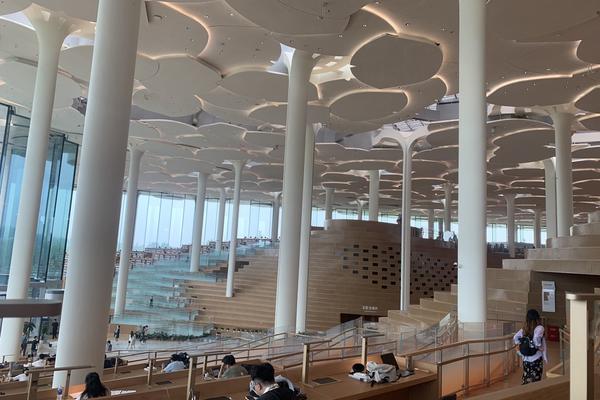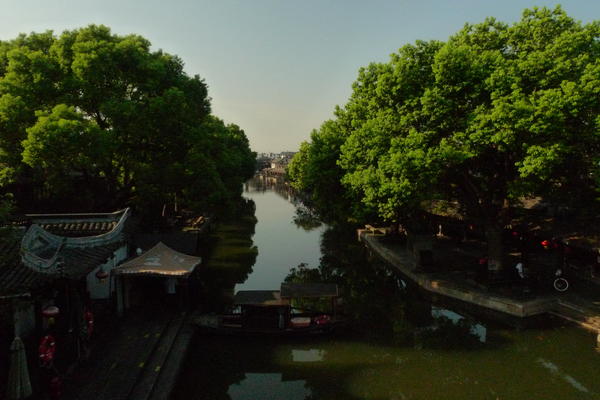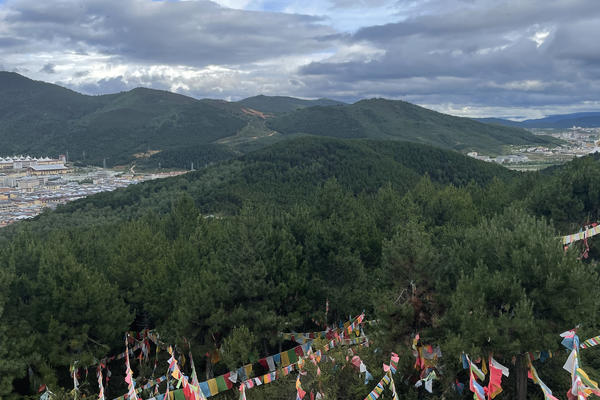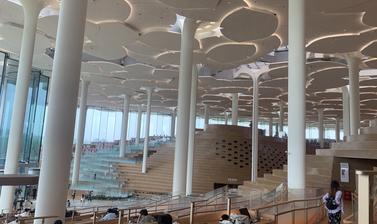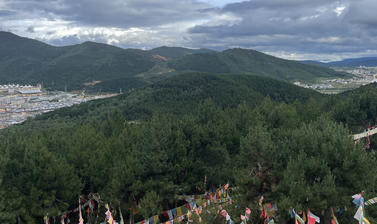Chinese BA (Hons)
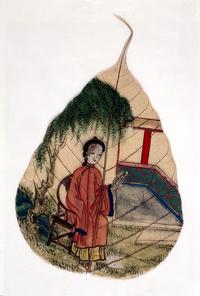
China’s long and continuous culture has survived from ancient times, with an influence that has spread beyond its own borders and contributed to the shape of the cultures of Japan, Korea and the whole of East Asia. The BA Honours course in Chinese at Oxford is designed to give students an understanding of both traditional and modern China, based on a knowledge of the classical and the modern Chinese languages.
The modern Chinese language forms the basis from which one can pursue any aspect of Chinese studies and is given high priority throughout the course, with students being taught reading, writing and spoken Chinese with a focus on understanding how the language is constructed and used. A training in Classical Chinese, which is not only a key to understanding traditional China but a significant element in the modern written language, is another central component of the course.
The Chinese course lasts four years, and is structured in two main parts, with important University examinations at the end of the first year (Prelims) and the fourth year (Finals). Students spend the whole of their second year studying in China or Taiwan.
The main emphasis in the first year is on building a sound basic knowledge of contemporary written and spoken Chinese, which involves at least ten hours a week of classroom and tutorial teaching, including language laboratory work. A further three hours a week are devoted to the study of the language of Ancient China. By the end of the first year students are ready to tackle intensive reading of both modern and classical texts. Throughout their first year students also attend lectures and receive tutorials on the history, society and cultures of China, involving extensive background reading and training in essay writing.
Following the Prelims examination, all undergraduates will spend their second in Taipei or Beijing. Recently, students have attended a course at National Taiwan Normal University which has been especially designed for Oxford’s undergraduates. In future years we expect that the Year Abroad will be taught at Peking University. Living and studying in a Chinese environment enables students to make rapid progress in all aspects of the modern language. Meanwhile, the course also continues to build on the first year training in the Classical language through the continued study of classical texts. For more information on the Year Abroad, please refer to the course handbook.
After returning from their year abroad at the start of the third year, students begin the second half of the course, the aim of which is to provide:
linguistic skills. In addition to the oral examination, language ability is tested in three papers: Modern Chinese prose composition, translation from Modern Chinese, and translation from Classical Chinese. Students receive instruction in interpreting, newspaper reading, prose composition and listening comprehension, all taught in small groups.
study of Chinese society, culture and history through original Chinese texts. This part of the course allows students to choose between various options. Students can take two options and an extended essay (or an additional subsidiary language, see below) as well as having a choice of Classical Chinese materials. In their options students read original Chinese texts as well as English materials chosen around a major theme, discuss them in classes and write essays for tutorials. The choice of options varies each year but there is usually a mix of contemporary, modern and premodern topics in literature, culture, history, philosophy and international relations. Students take one option in the third year and one in the fourth year of the course. Students taking the options also write a guided research project in the area of their third year option which is submitted for finals and provides training in how to use original Chinese materials for research. In addition to these options, as part of the Classical Chinese papers all students choose between either ancient Chinese philosophy or ancient Chinese history writing which are also taught through the reading of original texts.
a broad understanding of Chinese society. This is begun in preparation for the Prelims paper on the history and cultures of China, and is continued in the third year through a an interdisciplinary paper on modern and contemporary China which is taught in a series of lectures and tutorials.
independent study. Independent study throughout the course builds up to a 15,000 word dissertation. During the year abroad students undertake four short projects which lead them into a deeper understanding of the history, culture and society of China or Taiwan. In the third year those not taking a subsidiary language also submit the extended essay in the field of their option. In the final year students are required to submit a dissertation, which may be on a topic relating to any area of Chinese studies, such as literature, art, religion, or an aspect of contemporary China.
further language training. For those wishing to take an additional language, the subsidiaries in Japanese and Korean offer the possibility of studying another language to intermediate level. In addition to the study of the language and texts, students also study the history and culture associated with the relevant language.
We welcome applications from candidates with a wide variety of backgrounds. The course assumes no prior knowledge of Chinese. However, we do require at least one GCSE in a foreign language, or other demonstrable success in studying a foreign language.
Please note that this course is not designed for students whose first language is Chinese. We will consider applications from students whose level of Mandarin Chinese at entry ranges from complete beginner to approximately A-Level standard.
The degree provides intensive training in the modern Chinese language, but it should be regarded primarily as a chance to study a great society and culture remote from the European tradition, and to gain an educational experience which is valuable for its own sake. A special knowledge of China and its language gives advantages in careers such as translation, diplomacy, law, finance, commerce, the media and teaching. The Oxford course also provides a good foundation for further academic work and possible career opportunities in think tanks, universities, and museums. In addition, some of our students go on to use what they have learned in their degree in careers that are not specifically China related such as the civil service and local government.
Rather than listing individual titles, we suggest looking for works of Chinese fiction, poetry, and philosophy, many of which are available online, as well as following the news about China. For some general surveys on China’s cultures and language consult:
- The Cambridge Illustrated History of China, ed. Patricia Ebrey, 1996.
- The Open Empire: A History of China to 1600. Valerie Hansen, 2000.
- A Social History of Maoist China, Felix Wemheuer 2019.
- Kingdom of Characters. Jing Tsu, 2022.
Some examples of work by recent students on the year abroad:
Wang Huiguang’s Family History by Naomi Hughan
Has 'Hello Kitty' Shaped Taiwanese Society? by Harrison Kaye
An Interview with Ama during the Lunar New Year, by Mariah Weller
For further information please download a copy of the BA Chinese Handbook 2024-25.
Previous Handbooks



